Piano Sheet Music
 ".. it is so important that you use simplicity in your playing and in your music ..." James Burton / Lead Guitar Elvis Presley, Ricky Nelson, EmmyLou Harris, John Denver
".. it is so important that you use simplicity in your playing and in your music ..." James Burton / Lead Guitar Elvis Presley, Ricky Nelson, EmmyLou Harris, John Denver
H. P. Danks
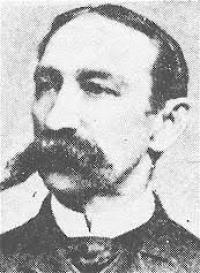
Hart Pease Danks (6 April 1834 – 20 November 1903) was an American musician who specialized in composing, singing and leading choral groups. He is best known for his 1873 composition, Silver Threads Among the Gold.
Vittorio Monti

Vittorio Monti (6 January 1868 – 20 June 1922) was an Italian composer, violinist, and conductor. Monti was born in Naples where he studied violin and composition at the Conservatorio di San Pietro a Majella. Around 1900 he got an assignment as the conductor for the Lamoureux Orchestra in Paris, where he wrote several ballets and operettas, for example Noël de Pierrot.
His only famous work is his Csárdás, written around 1904 and played by almost every gypsy orchestra.
His only famous work is his Csárdás, written around 1904 and played by almost every gypsy orchestra.
Elton John

Sir Elton Hercules John CBE (born Reginald Kenneth Dwight on 25 March 1947) is an English pop/rock singer, composer and pianist.
In his four-decade career, John has been one of the dominant forces in rock and popular music, especially during the 1970s. He has sold over 200 million records, making him one of the most successful artists of all time. He has more than 50 Top 40 hits including seven consecutive No. 1 U.S. albums, 59 Top 40 singles, 16 Top 10, four No. 2 hits, and nine No. 1 hits. He has won five Grammy awards and one Academy Award. His success has had a profound impact on popular music and has contributed to the continued popularity of the piano in rock and roll. In 2004, Rolling Stone ranked him #49 on their list of the 100 greatest artists of all time.
Some of the characteristics of John's musical talent include an ability to quickly craft melodies for the lyrics of songwriting partner Bernie Taupin, his former rich tenor (now baritone) voice, his classical and gospel-influenced piano, the aggressive orchestral arrangements of Paul Buckmaster among others and the flamboyant fashions, outlandishly excessive eyeglasses, and on-stage showmanship, especially evident during the 1970s.
John was inducted into the Rock and Roll Hall of Fame in 1994. He has been heavily involved in the fight against AIDS since the late 1980s, and was knighted in 1998. He entered into a civil partnership with David Furnish on 21 December 2005 and continues to be a champion for LGBT social movements. On April 9, 2008, John held a benefit concert for Hillary Clinton's presidential campaign, raising $2.5 million.
In his four-decade career, John has been one of the dominant forces in rock and popular music, especially during the 1970s. He has sold over 200 million records, making him one of the most successful artists of all time. He has more than 50 Top 40 hits including seven consecutive No. 1 U.S. albums, 59 Top 40 singles, 16 Top 10, four No. 2 hits, and nine No. 1 hits. He has won five Grammy awards and one Academy Award. His success has had a profound impact on popular music and has contributed to the continued popularity of the piano in rock and roll. In 2004, Rolling Stone ranked him #49 on their list of the 100 greatest artists of all time.
Some of the characteristics of John's musical talent include an ability to quickly craft melodies for the lyrics of songwriting partner Bernie Taupin, his former rich tenor (now baritone) voice, his classical and gospel-influenced piano, the aggressive orchestral arrangements of Paul Buckmaster among others and the flamboyant fashions, outlandishly excessive eyeglasses, and on-stage showmanship, especially evident during the 1970s.
John was inducted into the Rock and Roll Hall of Fame in 1994. He has been heavily involved in the fight against AIDS since the late 1980s, and was knighted in 1998. He entered into a civil partnership with David Furnish on 21 December 2005 and continues to be a champion for LGBT social movements. On April 9, 2008, John held a benefit concert for Hillary Clinton's presidential campaign, raising $2.5 million.
Brahms

Johannes Brahms (May 7, 1833 â April 3, 1897) was a German composer of the Romantic period. He was born in Hamburg and in his later years he settled in Vienna, Austria.
Brahms maintained a Classical sense of form and order in his works â in contrast to the opulence of the music of many of his contemporaries. Thus many admirers (though not necessarily Brahms himself) saw him as the champion of traditional forms and "pure music," as opposed to the New German embrace of program music.
Brahms venerated Beethoven: in the composer's home, a marble bust of Beethoven looked down on the spot where he composed, and some passages in his works are reminiscent of Beethoven's style. The main theme of the finale of Brahms's First Symphony is reminiscent of the main theme of the finale of Beethoven's Ninth, and when this resemblance was pointed out to Brahms he replied that any ass â jeder Esel â could see that.
Ein deutsches Requiem was partially inspired by his mother's death in 1865, but also incorporates material from a Symphony he started in 1854, but abandoned following Schumann's suicide attempt. He once wrote that the Requiem "belonged to Schumann". The first movement of this abandoned Symphony was re-worked as the first movement of the First Piano Concerto.
Brahms also loved the Classical composers Mozart and Haydn. He collected first editions and autographs of their works, and edited performing editions. He also studied the music of pre-classical composers, including Giovanni Gabrieli, Johann Adolph Hasse, Heinrich Schütz and especially Johann Sebastian Bach. His friends included leading musicologists, and with Friedrich Chrysander he edited an edition of the works of François Couperin. He looked to older music for inspiration in the arts of strict counterpoint; the themes of some of his works are modelled on Baroque sources, such as Bach's The Art of Fugue in the fugal finale of Cello Sonata No. 1, or the same composer's Cantata No. 150 in the passacaglia theme of the Fourth Symphony's finale.
Brahms maintained a Classical sense of form and order in his works â in contrast to the opulence of the music of many of his contemporaries. Thus many admirers (though not necessarily Brahms himself) saw him as the champion of traditional forms and "pure music," as opposed to the New German embrace of program music.
Brahms venerated Beethoven: in the composer's home, a marble bust of Beethoven looked down on the spot where he composed, and some passages in his works are reminiscent of Beethoven's style. The main theme of the finale of Brahms's First Symphony is reminiscent of the main theme of the finale of Beethoven's Ninth, and when this resemblance was pointed out to Brahms he replied that any ass â jeder Esel â could see that.
Ein deutsches Requiem was partially inspired by his mother's death in 1865, but also incorporates material from a Symphony he started in 1854, but abandoned following Schumann's suicide attempt. He once wrote that the Requiem "belonged to Schumann". The first movement of this abandoned Symphony was re-worked as the first movement of the First Piano Concerto.
Brahms also loved the Classical composers Mozart and Haydn. He collected first editions and autographs of their works, and edited performing editions. He also studied the music of pre-classical composers, including Giovanni Gabrieli, Johann Adolph Hasse, Heinrich Schütz and especially Johann Sebastian Bach. His friends included leading musicologists, and with Friedrich Chrysander he edited an edition of the works of François Couperin. He looked to older music for inspiration in the arts of strict counterpoint; the themes of some of his works are modelled on Baroque sources, such as Bach's The Art of Fugue in the fugal finale of Cello Sonata No. 1, or the same composer's Cantata No. 150 in the passacaglia theme of the Fourth Symphony's finale.
Wagner
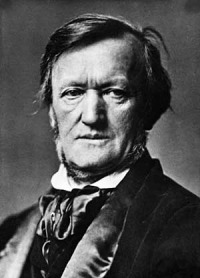
Wilhelm Richard Wagner (22 May 1813, Leipzig, Germany - 13 February 1883, Venice, Italy) was a German composer, conductor, theatre director and essayist, primarily known for his operas (or "music dramas", as they were later called). Unlike most other great opera composers, Wagner wrote both the scenario and libretto for his works.
Wagner's compositions, particularly those of his later period, are notable for contrapuntal texture, rich chromaticism, harmonies and orchestration, and elaborate use of leitmotifs: musical themes associated with particular characters, locales or plot elements. Wagner pioneered advances in musical language, such as extreme chromaticism and quickly shifting tonal centres, which greatly influenced the development of European classical music.
He transformed musical thought through his idea of Gesamtkunstwerk ("total artwork"), the synthesis of all the poetic, visual, musical and dramatic arts, epitomized by his monumental four-opera cycle Der Ring des Nibelungen (1876). To try to stage these works as he imagined them, Wagner built his own opera house.
Wagner's musical style is often considered the epitome of classical music's Romantic period, due to its unprecedented exploration of emotional expression. He introduced new ideas in harmony and musical form, including extreme chromaticism. In Tristan und Isolde, he explored the limits of the traditional tonal system that gave keys and chords their identity, pointing the way to atonality in the 20th century. Some music historians date the beginning of modern classical music to the first notes of Tristan, the so-called Tristan chord.
Wagner's compositions, particularly those of his later period, are notable for contrapuntal texture, rich chromaticism, harmonies and orchestration, and elaborate use of leitmotifs: musical themes associated with particular characters, locales or plot elements. Wagner pioneered advances in musical language, such as extreme chromaticism and quickly shifting tonal centres, which greatly influenced the development of European classical music.
He transformed musical thought through his idea of Gesamtkunstwerk ("total artwork"), the synthesis of all the poetic, visual, musical and dramatic arts, epitomized by his monumental four-opera cycle Der Ring des Nibelungen (1876). To try to stage these works as he imagined them, Wagner built his own opera house.
Wagner's musical style is often considered the epitome of classical music's Romantic period, due to its unprecedented exploration of emotional expression. He introduced new ideas in harmony and musical form, including extreme chromaticism. In Tristan und Isolde, he explored the limits of the traditional tonal system that gave keys and chords their identity, pointing the way to atonality in the 20th century. Some music historians date the beginning of modern classical music to the first notes of Tristan, the so-called Tristan chord.
Faith Hill
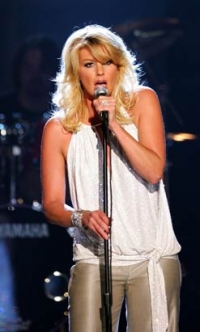
Audrey Faith Perry McGraw, known professionally as Faith Hill (born September 21, 1967), is an American country and pop singer, known both for her commercial success and her marriage to fellow country star Tim McGraw. Hill's voice (described as both soulful and raspy) and careful song selection have helped her to sell more than 35 million records and accumulate eleven number-one singles on the Country charts.
Hill has been honored by the Country Music Association, the Academy of Country Music, the Grammy Awards, the American Music Awards and the People's Choice Awards. Her Soul2Soul II Tour 2006 with husband McGraw became the highest-grossing country tour of all time. In 2001 she was named one of the "30 Most Powerful Women in America" by Ladies Home Journal.
Hill has been honored by the Country Music Association, the Academy of Country Music, the Grammy Awards, the American Music Awards and the People's Choice Awards. Her Soul2Soul II Tour 2006 with husband McGraw became the highest-grossing country tour of all time. In 2001 she was named one of the "30 Most Powerful Women in America" by Ladies Home Journal.
The Fray
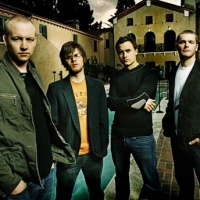
The Fray is a Grammy Award-nominated four-piece piano rock American band from Denver, Colorado. Formed in 2002 by schoolmates Isaac Slade and Joe King, the band released their debut album How to Save a Life in 2005. The band is best known for the song "How to Save a Life", which charted in the top three of the Billboard Hot 100 and was also a top 5 single in Canada, Australia, Ireland, Sweden, and the United Kingdom. The Fray also found national success with the song "Over My Head (Cable Car)", which became a top ten hit in the United States and Canada. How to Save a Life was certified double platinum by the Recording Industry Association of America and was also certified platinum in Australia and New Zealand.
The Fray was formed in 2002, and currently consists of Isaac Slade (vocals and piano), Joe King (guitar and vocals), Dave Welsh (guitar) and Ben Wysocki (drums and percussion). While the band has no official bass guitarist, Dan Lavery of Tonic has been the touring bassist since March 2007. Prior to Dan joining the touring fold, Jimmy Stofer, also a member of the band Hello Kavita, was employed as the band's touring bassist from 2005 through February 2007.
The Fray was formed in 2002, and currently consists of Isaac Slade (vocals and piano), Joe King (guitar and vocals), Dave Welsh (guitar) and Ben Wysocki (drums and percussion). While the band has no official bass guitarist, Dan Lavery of Tonic has been the touring bassist since March 2007. Prior to Dan joining the touring fold, Jimmy Stofer, also a member of the band Hello Kavita, was employed as the band's touring bassist from 2005 through February 2007.
Tchaikovsky

Pyotr Il'yich Tchaikovsky (May 7 1840 â November 6 1893) was a Russian composer of the Romantic era. While not part of the nationalistic music group known as "The Five", Tchaikovsky wrote music which, in the opinion of Harold Schonberg, was distinctly Russian: plangent, introspective, with modally-inflected melody and harmony.
Aesthetically, Tchaikovsky remained open to all aspects of Saint Petersburg musical life. He was impressed by Serov and Balakirev as well as the classical values upheld by the conservatory. Both the progressive and conservative camps in Russian music at the time attempted to win him over. Tchaikovsky charted his compositional course between these two factions, retaining his individuality as a composer as well as his Russian identity. In this he was influenced by the ideals of his teacher Nikolai Rubinstein and Nikolai's brother Anton.
Tchaikovsky's musical cosmopolitanism led him to be favored by many Russian music-lovers over the "Russian" harmonies and styles of Mussorgsky, Borodin and Rimsky-Korsakov.
Nonetheless he frequently adapted Russian traditional melodies and dance forms in his music, which enhanced his success in his home country. The success in St. Petersburg at the premiere of his Third Orchestral Suite may have been due in large part to his concluding the work with a polonaise. He also used a polonaise for the final movement of his Third Symphony.
Aesthetically, Tchaikovsky remained open to all aspects of Saint Petersburg musical life. He was impressed by Serov and Balakirev as well as the classical values upheld by the conservatory. Both the progressive and conservative camps in Russian music at the time attempted to win him over. Tchaikovsky charted his compositional course between these two factions, retaining his individuality as a composer as well as his Russian identity. In this he was influenced by the ideals of his teacher Nikolai Rubinstein and Nikolai's brother Anton.
Tchaikovsky's musical cosmopolitanism led him to be favored by many Russian music-lovers over the "Russian" harmonies and styles of Mussorgsky, Borodin and Rimsky-Korsakov.
Nonetheless he frequently adapted Russian traditional melodies and dance forms in his music, which enhanced his success in his home country. The success in St. Petersburg at the premiere of his Third Orchestral Suite may have been due in large part to his concluding the work with a polonaise. He also used a polonaise for the final movement of his Third Symphony.
Beethoven

Ludwig van Beethoven (16 December 1770 - 26 March 1827) was a German composer and pianist. He was a crucial figure in the transitional period between the Classical and Romantic eras in Western classical music, and remains one of the most respected and influential composers of all time.
Born in Bonn, then in the Electorate of Cologne (now in modern-day Germany), he moved to Vienna in his early twenties and settled there, studying with Joseph Haydn and quickly gaining a reputation as a virtuoso pianist. Beethoven's hearing gradually deteriorated beginning in his twenties, yet he continued to compose masterpieces, and to conduct and perform, even after he was completely deaf.
Born in Bonn, then in the Electorate of Cologne (now in modern-day Germany), he moved to Vienna in his early twenties and settled there, studying with Joseph Haydn and quickly gaining a reputation as a virtuoso pianist. Beethoven's hearing gradually deteriorated beginning in his twenties, yet he continued to compose masterpieces, and to conduct and perform, even after he was completely deaf.
Harold Arlen
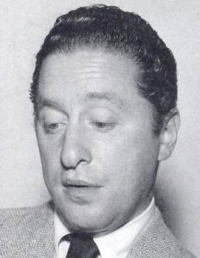
Harold Arlen (February 15, 1905 – April 23, 1986) was an American composer of popular music. Having written over 500 songs, a number of which have become known the world over. In addition to being the composer of The Wizard of Oz, Arlen is a highly regarded contributor to the Great American Songbook. His 1938 song "Over the Rainbow” was voted the twentieth century's No. 1 song by the Recording Industry Association of America (RIAA) and the National Endowment for the Arts (NEA).
Brian Lowdermilk

Brian Lowdermilk (born December 14, 1982) is an American musical theater composer and lyricistBrian Lowdermilk is a composer and lyricist of musicals. He is also a music director, arranger, vocal coach, and pianist. He is an alumnus of NYU and BMI theatre writing workshop, and CEO of start-up, NewMusicalTheatre.com.
Lowdermilk is best known for his collaborations with Kait Kerrigan. Their works together include shows such as The Bad Years, Republic, Unbound, Flash of Time, The Woman Upstairs, The Unauthorized Autobiography of Samantha Brown (with Zach Altman) and Wrong Number. Lowdermilk and Kerrigan wrote TheatreworksUSA's adaptation of Henry and Mudge, which premiered Off-Broadway in 2006 at the Lucille Lortel Theatre, which is where he made his Off-Broadway debut. In one review of that piece, Lowdermilk and Kerrigan were called "perhaps the most important young writers in musical theatre today."
Lowdermilk is best known for his collaborations with Kait Kerrigan. Their works together include shows such as The Bad Years, Republic, Unbound, Flash of Time, The Woman Upstairs, The Unauthorized Autobiography of Samantha Brown (with Zach Altman) and Wrong Number. Lowdermilk and Kerrigan wrote TheatreworksUSA's adaptation of Henry and Mudge, which premiered Off-Broadway in 2006 at the Lucille Lortel Theatre, which is where he made his Off-Broadway debut. In one review of that piece, Lowdermilk and Kerrigan were called "perhaps the most important young writers in musical theatre today."
Raymond Lam

Raymond Lam (born 8 December 1979) is a Hong Kong actor and singer under contracts with TV station TVB and EEG's Music Plus label.
Apart from his acting career, Lam also performed some of the theme songs for the TV series he acted in. In 2007, Lam signed on with EEG under its Music Plus Label, and released his debut album, Love is Finding You in Memories, on 23 November. More than 20,000 copies were sold three weeks after the album was released. In addition, the album received the IFPI Gold Disk Award and became the top-selling album for Lam as a newcomer.
On September 10, 2008, Lam released his second album Your Love, and a month after the release, the album secured a double IFPI Platinum Award for reaching sales of more than 20,000 copies. A featured song from the album, Love With No Regrets, the theme song from Moonlight Resonance, won many awards.
In 2009, Lam stepped on the Hong Kong Coliseum for the Let's Get Wet concert held on 17 and 18 June, where both nights were sold out. EEG and TVB showed strong support for his concert and a billboard advertisement was featured at the entrance of Cross Harbour Tunnel to publicize the event. In memory of his first concert held at the Hong Kong Coliseum, Lam is currently preparing his first album in Mandarin, which is expected to be released soon. Lam also won the Asia-Pacific Most Popular Male Artist Award on 16 January 2010 at the Jade Solid Gold Top 10 Awards due to the contract issue between TVB and the Big Four record companies. Many Netcitizens and Hong Kong media criticized TVB for giving him that award out of commercial point. Because he is a TVB contracted actor, many artists were unable to attend this award ceremony. He became the first singer to receive the award in three years and also the youngest one ever. On July 17, 2010, Lam released his fourth album Come 2 Me.
Apart from his acting career, Lam also performed some of the theme songs for the TV series he acted in. In 2007, Lam signed on with EEG under its Music Plus Label, and released his debut album, Love is Finding You in Memories, on 23 November. More than 20,000 copies were sold three weeks after the album was released. In addition, the album received the IFPI Gold Disk Award and became the top-selling album for Lam as a newcomer.
On September 10, 2008, Lam released his second album Your Love, and a month after the release, the album secured a double IFPI Platinum Award for reaching sales of more than 20,000 copies. A featured song from the album, Love With No Regrets, the theme song from Moonlight Resonance, won many awards.
In 2009, Lam stepped on the Hong Kong Coliseum for the Let's Get Wet concert held on 17 and 18 June, where both nights were sold out. EEG and TVB showed strong support for his concert and a billboard advertisement was featured at the entrance of Cross Harbour Tunnel to publicize the event. In memory of his first concert held at the Hong Kong Coliseum, Lam is currently preparing his first album in Mandarin, which is expected to be released soon. Lam also won the Asia-Pacific Most Popular Male Artist Award on 16 January 2010 at the Jade Solid Gold Top 10 Awards due to the contract issue between TVB and the Big Four record companies. Many Netcitizens and Hong Kong media criticized TVB for giving him that award out of commercial point. Because he is a TVB contracted actor, many artists were unable to attend this award ceremony. He became the first singer to receive the award in three years and also the youngest one ever. On July 17, 2010, Lam released his fourth album Come 2 Me.
Lady Gaga

Lady Gaga (born Stefani Joanne Angelina Germanotta on March 28, 1986) is an American recording artist. She began performing in the rock music scene of New York City's Lower East Side. She soon signed with Streamline Records, an imprint of Interscope Records, upon its establishment in 2007. During her early time at Interscope, she worked as a songwriter for fellow label artists and captured the attention of Akon, who recognized her vocal abilities, and had her also sign to his own label, Kon Live Distribution.
Her debut album, The Fame, was released on August 19, 2008. In addition to receiving generally positive reviews, it reached number-one in Canada, Austria, Germany, and Ireland and topped the Billboard Top Electronic Albums chart. Its first two singles, "Just Dance" and "Poker Face", co-written and co-produced with RedOne, became international number-one hits, topping the Hot 100 in the United States as well as other countries. The album later earned a total of six Grammy Award nominations and won awards for Best Electronic/Dance Album and Best Dance Recording. In early 2009, after having opened for New Kids on the Block and the Pussycat Dolls, she embarked on her first headlining tour, The Fame Ball Tour. By the fourth quarter of 2009, she released her second studio album The Fame Monster, with the global chart-topping lead single "Bad Romance", as well as having embarked on her second headlining tour of the year, The Monster Ball Tour.
Lady Gaga is inspired by glam rock musicians such as David Bowie and Freddie Mercury, as well as pop music artists such as Madonna and Michael Jackson. She has also stated fashion is a source of inspiration for her songwriting and performances. To date, she has sold over eight million albums and over thirty-five million singles worldwide.
Her debut album, The Fame, was released on August 19, 2008. In addition to receiving generally positive reviews, it reached number-one in Canada, Austria, Germany, and Ireland and topped the Billboard Top Electronic Albums chart. Its first two singles, "Just Dance" and "Poker Face", co-written and co-produced with RedOne, became international number-one hits, topping the Hot 100 in the United States as well as other countries. The album later earned a total of six Grammy Award nominations and won awards for Best Electronic/Dance Album and Best Dance Recording. In early 2009, after having opened for New Kids on the Block and the Pussycat Dolls, she embarked on her first headlining tour, The Fame Ball Tour. By the fourth quarter of 2009, she released her second studio album The Fame Monster, with the global chart-topping lead single "Bad Romance", as well as having embarked on her second headlining tour of the year, The Monster Ball Tour.
Lady Gaga is inspired by glam rock musicians such as David Bowie and Freddie Mercury, as well as pop music artists such as Madonna and Michael Jackson. She has also stated fashion is a source of inspiration for her songwriting and performances. To date, she has sold over eight million albums and over thirty-five million singles worldwide.
Felix Mendelssohn

Jakob Ludwig Felix Mendelssohn Bartholdy, born, and generally known in English-speaking countries, as Felix Mendelssohn (February 3, 1809 – November 4, 1847) was a German composer, pianist, organist and conductor of the early Romantic period.
The grandson of the philosopher Moses Mendelssohn, he was born into a notable Jewish family, although he himself was brought up initially without religion, and later as a Lutheran. He was recognized early as a musical prodigy, but his parents were cautious and did not seek to capitalise on his abilities. Indeed his father was disinclined to allow Felix to follow a musical career until it became clear that he intended to seriously dedicate himself to it.
Early success in Germany was followed by travel throughout Europe; Mendelssohn was particularly well received in England as a composer, conductor and soloist, and his ten visits there, during which many of his major works were premiered, form an important part of his adult career. His essentially conservative musical tastes however set him apart from many of his more adventurous musical contemporaries such as Liszt, Wagner and Berlioz. The Conservatory he founded at Leipzig became a bastion of this anti-radical outlook.
Mendelssohn's work includes symphonies, concerti, oratorios, piano and chamber music. He also had an important role in the revival of interest in the music of Johann Sebastian Bach. After a long period of relative denigration due to changing musical tastes and antisemitism in the late 19th and early 20th centuries, his creative originality is now being recognized and re-evaluated. He is now among the most popular composers of the Romantic era.
The grandson of the philosopher Moses Mendelssohn, he was born into a notable Jewish family, although he himself was brought up initially without religion, and later as a Lutheran. He was recognized early as a musical prodigy, but his parents were cautious and did not seek to capitalise on his abilities. Indeed his father was disinclined to allow Felix to follow a musical career until it became clear that he intended to seriously dedicate himself to it.
Early success in Germany was followed by travel throughout Europe; Mendelssohn was particularly well received in England as a composer, conductor and soloist, and his ten visits there, during which many of his major works were premiered, form an important part of his adult career. His essentially conservative musical tastes however set him apart from many of his more adventurous musical contemporaries such as Liszt, Wagner and Berlioz. The Conservatory he founded at Leipzig became a bastion of this anti-radical outlook.
Mendelssohn's work includes symphonies, concerti, oratorios, piano and chamber music. He also had an important role in the revival of interest in the music of Johann Sebastian Bach. After a long period of relative denigration due to changing musical tastes and antisemitism in the late 19th and early 20th centuries, his creative originality is now being recognized and re-evaluated. He is now among the most popular composers of the Romantic era.
Giovanni Allevi

Giovanni Allevi (; born in Ascoli Piceno, April 9, 1969) is an Italian pianist and composerAllevi attained a "first-class diploma" both in piano at the "F. Morlacchi" conservatoire in Perugia and in composition at the "G. Verdi" academy of music in Milan. He graduated cum laude in Philosophy with a thesis entitled "Il vuoto nella Fisica contemporanea" (The Void in Contemporary Physics) and he attended the Accademia Internazionale di Alto Perfezionamento in Arezzo, under maestro Carlo Alberto Neri.
Eric Clapton
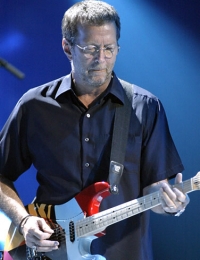
Eric Patrick Clapton, CBE (born 30 March 1945), is an English blues-rock guitarist, singer, songwriter and composer. He is one of the most successful musicians of the 20th and 21st centuries, garnering an unprecedented three inductions into the Rock and Roll Hall of Fame (The Yardbirds, Cream, and solo). Often viewed by critics and fans alike as one of the greatest guitarists of all time, Clapton was ranked fourth in Rolling Stone Magazine's list of the "100 Greatest Guitarists of All Time" and #53 on their list of the Immortals: 100 Greatest Artists of All Time.
Although Clapton's musical style has varied throughout his career, it has usually remained rooted in the blues. Clapton is credited as an innovator in several phases of his career, which have included blues-rock (with John Mayall & the Bluesbreakers and The Yardbirds) and psychedelic rock (with Cream). Clapton has also achieved great chart success in genres ranging from Delta blues (Me and Mr. Johnson) to pop ("Change the World") and reggae (Bob Marley's "I Shot the Sheriff"). Clapton also achieved fame with Derek and the Dominos through the hit song "Layla".
Although Clapton's musical style has varied throughout his career, it has usually remained rooted in the blues. Clapton is credited as an innovator in several phases of his career, which have included blues-rock (with John Mayall & the Bluesbreakers and The Yardbirds) and psychedelic rock (with Cream). Clapton has also achieved great chart success in genres ranging from Delta blues (Me and Mr. Johnson) to pop ("Change the World") and reggae (Bob Marley's "I Shot the Sheriff"). Clapton also achieved fame with Derek and the Dominos through the hit song "Layla".
Rimsky-Korsakov
Nikolai Andreyevich Rimsky-Korsakov (Russian: Никола́й Андре́евич Ри́мский-Ко́рсаков, Nikolaj Andreevič Rimskij-Korsakov, Russian pronunciation: ) (18 March 1844, – 21 June 1908) was a Russian composer, and a member of the group of composers known as The Five. He was a master of orchestration. His best-known orchestral compositions—Capriccio Espagnol, the Russian Easter Festival Overture, and the symphonic suite Scheherazade—are considered staples of the classical music repertoire, along with suites and excerpts from some of his 15 operas. Scheherazade is an example of his frequent use of fairy tale and folk subjects.
Rimsky-Korsakov believed, as did fellow composer Mily Balakirev and critic Vladimir Stasov, in developing a nationalistic style of classical music. This style employed Russian folk song and lore along with exotic harmonic, melodic and rhythmic elements in a practice known as musical orientalism, and eschewed traditional Western compositional methods. However, Rimsky-Korsakov appreciated Western musical techniques after he became a professor of musical composition, harmony and orchestration at the Saint Petersburg Conservatory in 1871. He undertook a rigorous three-year program of self-education and became a master of Western methods, incorporating them alongside the influences of Mikhail Glinka and fellow members of The Five. His techniques of composition and orchestration were further enriched by his exposure to the works of Richard Wagner.
Rimsky-Korsakov believed, as did fellow composer Mily Balakirev and critic Vladimir Stasov, in developing a nationalistic style of classical music. This style employed Russian folk song and lore along with exotic harmonic, melodic and rhythmic elements in a practice known as musical orientalism, and eschewed traditional Western compositional methods. However, Rimsky-Korsakov appreciated Western musical techniques after he became a professor of musical composition, harmony and orchestration at the Saint Petersburg Conservatory in 1871. He undertook a rigorous three-year program of self-education and became a master of Western methods, incorporating them alongside the influences of Mikhail Glinka and fellow members of The Five. His techniques of composition and orchestration were further enriched by his exposure to the works of Richard Wagner.
Adele

Adele Laurie Blue Adkins (born 5 May 1988 in Enfield, North London), She is the first recipient of the Brit Awards Critics' Choice, which was given to artists who, at the time, had yet to release an album. She debuted at number one with her Mercury Prize nominated debut album 19 in the UK album chart and has since then been certified platinum with sales over 500,000 copies.
Alexander Scriabin
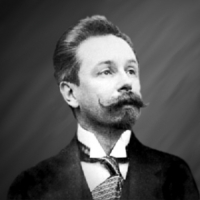
Alexander Nikolayevich Scriabin (/skriˈæbɪn/; Russian: Алекса́ндр Никола́евич Скря́бин; 6 January 1872 – 27 April 1915) was a Russian composer and pianist. Scriabin's early work is characterised by a lyrical and idiosyncratic tonal language influenced by Frédéric Chopin. Later in his career, independently of Arnold Schoenberg, Scriabin developed a substantially atonal and much more dissonant musical system, accorded to mysticism. Scriabin was influenced by synesthesia, and associated colors with the various harmonic tones of his atonal scale, while his color-coded circle of fifths was also influenced by theosophy. He is considered by some to be the main Russian Symbolist composer.
Scriabin was one of the most innovative and most controversial of early modern composers. The Great Soviet Encyclopedia said of Scriabin that, "No composer has had more scorn heaped or greater love bestowed..." Leo Tolstoy once described Scriabin's music as "a sincere expression of genius." Scriabin had a major impact on the music world over time, and influenced composers like Roy Agnew, Nikolai Roslavets, Sergei Prokofiev and Igor Stravinsky. Scriabin's importance in the Soviet musical scene, and internationally, drastically declined. "No one was more famous during their lifetime, and few were more quickly ignored after death." In the 1970s, for instance, there were only three recordings of his complete (published) sonatas. Yet Scriabin's work has steadily regained popularity in recent years.
Scriabin was one of the most innovative and most controversial of early modern composers. The Great Soviet Encyclopedia said of Scriabin that, "No composer has had more scorn heaped or greater love bestowed..." Leo Tolstoy once described Scriabin's music as "a sincere expression of genius." Scriabin had a major impact on the music world over time, and influenced composers like Roy Agnew, Nikolai Roslavets, Sergei Prokofiev and Igor Stravinsky. Scriabin's importance in the Soviet musical scene, and internationally, drastically declined. "No one was more famous during their lifetime, and few were more quickly ignored after death." In the 1970s, for instance, there were only three recordings of his complete (published) sonatas. Yet Scriabin's work has steadily regained popularity in recent years.
K-ON
K-On! (Japanese: けいおん!, Hepburn: Keion!) is a Japanese four-panel manga written and illustrated by Kakifly. It was serialized in Houbunsha's monthly seinen manga magazine Manga Time Kirara between the May 2007 and October 2010 issues. It was also serialized in Houbunsha's magazine Manga Time Kirara Carat. The manga relaunched from April 2011 to June 2012 with two separate storylines published in Manga Time Kirara and Manga Time Kirara Carat. The manga is licensed in North America by Yen Press. A spin-off manga about a different band of high school girls, K-On! Shuffle, began serialization in July 2018.
Robert Longo
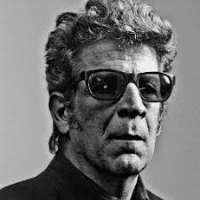
Robert Longo (born January 7, 1953) is a Pictures Generation American artist, filmmaker, photographer and musician. Longo became first well known in the 1980s for his Men in the Cities drawing and print series, which depict sharply dressed men and women writhing in contorted emotion.
Lieve Hugo
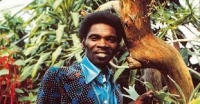
Julius Theodoor Hugo Uiterloo (December 13, 1934 – November 15, 1975), better known by his stage-name Lieve Hugo and his nickname Iko, was a Surinamese singer. He was one of the pioneers of the kaseko-genre; hence his other nickname King of KasekoLieve Hugo sang in a choir and played drums and percussion in a variety of bands with or without other retired boxers. In 1967 he joined Washboard Orchestra; in this band, who more or less invented kaseko, he was both a drummer and a singer. A mutated version headlined the 1970 Holland Festival at the Amsterdam Concertgebouw and got the crowd on their dancing feet. Health-reasons forced him to leave Washboard Orchestra and put down the drumsticks too.
OneRepublic
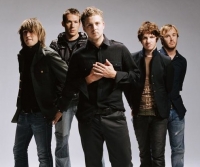
OneRepublic is an American Rock band formed in Colorado. After a few years of moderate success, they have since drawn mainstream attention with the release of their single "Apologize," which has sold in excess of 7 million singles worldwide. The song, according to SoundScan Data, is one of only two songs that have reached 3 million legal downloads in history. A remix of "Apologize" was featured on Timbaland's Shock Value and the band's debut album, Dreaming Out Loud, produced by Greg Wells. Their debut album was released in the United States on November 20, 2007, with international release dates staggered throughout early 2008. As of June 14, 2008, Dreaming Out Loud had sold 761,298 copies in the U.S. with the bands total album sales coming to over 1.5 million worldwide so far. The band's second single, "Stop and Stare," has also crossed the 2 million mark in terms of worldwide single sales. Their third single, "Say (All I Need)", has been released in the UK and in the U.S. Their fourth single will be "Mercy", as stated by OneRepublic's MySpace page. The video has been streamed on Youtube.com.
Current members:
Ryan Tedder – Lead vocals, Guitar, Bass Guitar, Piano, Glockenspiel, Drums (2002–present)
Zach Filkins – Guitar, vocals (2002–present)
Drew Brown – Guitar, Bass Guitar, Glockenspiel (2002–present)
Eddie Fisher – Drums, percussion (2005–present)
Brent Kutzle – Bass guitar, keyboards, cello, vocals (2007–present)
Current members:
Ryan Tedder – Lead vocals, Guitar, Bass Guitar, Piano, Glockenspiel, Drums (2002–present)
Zach Filkins – Guitar, vocals (2002–present)
Drew Brown – Guitar, Bass Guitar, Glockenspiel (2002–present)
Eddie Fisher – Drums, percussion (2005–present)
Brent Kutzle – Bass guitar, keyboards, cello, vocals (2007–present)
jesus adrian romero
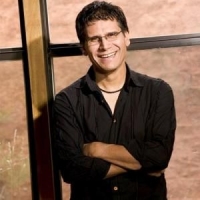
Jesús Adrián Romero is a Mexican author, Latin Christian music singer, composer, and pastor from Hermosillo, Sonora, Mexico. With more than 25 years of experience, Jesus Adrián is considered one of the most representative and highest exponents of this genre in Spanish language and also as one of the greatest ministers that have risen in recent times.Romero is the founder and president of Vástago Producciones, a record label dedicated to the production and distribution of music with a Christian message. Vástago Producciones also organizes and promotes concerts with Latin Christian music.
U2

U2 are a rock band from Dublin, Ireland. The band consists of Bono (vocals and guitar), The Edge (guitar, keyboards, and vocals), Adam Clayton (bass guitar) and Larry Mullen, Jr. (drums and percussion).
The band formed in 1976 when the members were teenagers with limited musical proficiency. By the mid-1980s, however, the band had become a top international act, noted for their anthemic sound, Bono's impassioned vocals, and The Edge's textural guitar playing. Their success as a live act was greater than their success at selling records until their 1987 album The Joshua Tree increased the band's stature "from heroes to superstars," according to Rolling Stone. U2 responded to the dance and alternative rock revolutions, and their own sense of musical stagnation by reinventing themselves with their 1991 album Achtung Baby and the accompanying Zoo TV Tour. Similar experimentation continued for the rest of the 1990s. Since 2000, U2 have pursued a more traditional sound that retains the influence of their previous musical explorations.
U2 have sold more than 140 million albums worldwide and have won 22 Grammy Awards, more than any other band. In 2005, the band were inducted into the Rock and Roll Hall of Fame in their first year of eligibility. Rolling Stone magazine listed U2 at #22 in its list of the 100 greatest artists of all time. Throughout their career, as a band and as individuals, they have campaigned for human rights and social justice causes, including Amnesty International, the ONE Campaign, and Bono's DATA (Debt, AIDS, Trade in Africa) campaign.
The band formed in 1976 when the members were teenagers with limited musical proficiency. By the mid-1980s, however, the band had become a top international act, noted for their anthemic sound, Bono's impassioned vocals, and The Edge's textural guitar playing. Their success as a live act was greater than their success at selling records until their 1987 album The Joshua Tree increased the band's stature "from heroes to superstars," according to Rolling Stone. U2 responded to the dance and alternative rock revolutions, and their own sense of musical stagnation by reinventing themselves with their 1991 album Achtung Baby and the accompanying Zoo TV Tour. Similar experimentation continued for the rest of the 1990s. Since 2000, U2 have pursued a more traditional sound that retains the influence of their previous musical explorations.
U2 have sold more than 140 million albums worldwide and have won 22 Grammy Awards, more than any other band. In 2005, the band were inducted into the Rock and Roll Hall of Fame in their first year of eligibility. Rolling Stone magazine listed U2 at #22 in its list of the 100 greatest artists of all time. Throughout their career, as a band and as individuals, they have campaigned for human rights and social justice causes, including Amnesty International, the ONE Campaign, and Bono's DATA (Debt, AIDS, Trade in Africa) campaign.
ABBA

ABBA was a Swedish Eurovision Song Contest-winning pop music group active between 1972 and 1982. Benny Andersson, Björn Ulvaeus, Anni-Frid Lyngstad (Frida), Agnetha Fältskog are in ABBA. They topped the charts worldwide from the mid-1970s to the early 1980s. The name "ABBA" is an acronym formed from the first letters of each of the group member's given name (Agnetha, Björn, Benny, Anni-Frid).
ABBA gained immense international popularity employing catchy song hooks, simple lyrics, and a Wall of Sound achieved by overdubbing the female singers' voices in multiple harmonies. As their popularity grew, they were sought-after to tour Europe, Australia, and North America, drawing crowds of near-hysterical fans ("ABBAholics"), notably in Australia. Touring became a contentious issue, being particularly unpopular with Agnetha, but they continued to release studio albums to great commercial success. At the height of their popularity, however, both marriages of the band members (Benny with Frida, and Björn with Agnetha) failed, and the relationship changes were reflected in their music, as they produced more thoughtful lyrics with different compositions.
They remain a fixture of radio playlists and are one of the world's best selling bands, having sold around 400 million records world wide; The music of ABBA has been re-arranged into the successful musical Mamma Mia! that has toured worldwide and a movie version was released in July 2008. All four of the former members of ABBA were present at the Stockholm premieres of both the musical (2005) and the film (2008). The film première took place at the Benny Andersson-owned Rival theatre at Mariatorget, Stockholm on 4 July 2008.
ABBA gained immense international popularity employing catchy song hooks, simple lyrics, and a Wall of Sound achieved by overdubbing the female singers' voices in multiple harmonies. As their popularity grew, they were sought-after to tour Europe, Australia, and North America, drawing crowds of near-hysterical fans ("ABBAholics"), notably in Australia. Touring became a contentious issue, being particularly unpopular with Agnetha, but they continued to release studio albums to great commercial success. At the height of their popularity, however, both marriages of the band members (Benny with Frida, and Björn with Agnetha) failed, and the relationship changes were reflected in their music, as they produced more thoughtful lyrics with different compositions.
They remain a fixture of radio playlists and are one of the world's best selling bands, having sold around 400 million records world wide; The music of ABBA has been re-arranged into the successful musical Mamma Mia! that has toured worldwide and a movie version was released in July 2008. All four of the former members of ABBA were present at the Stockholm premieres of both the musical (2005) and the film (2008). The film première took place at the Benny Andersson-owned Rival theatre at Mariatorget, Stockholm on 4 July 2008.
Paganini

Niccolò Paganini (27 October 1782 – 27 May 1840) was an Italian violinist, violist, guitarist, and composer. He was one of the most celebrated violin virtuosi of his time, and left his mark as one of the pillars of modern violin technique. His caprice in A minor, Op. 1 No. 24 is among his best known of compositions, and serves as inspiration for many prominent artists.
Paganini composed his own works to play exclusively in his concerts, all of which had profound influences on the evolution of violin techniques. His 24 Caprices were probably composed in the period between 1805 to 1809, while he was in the service of the Baciocchi court. Also during this period, he composed the majority of the solo pieces, duo-sonatas,trios and quartets for the guitar. These chamber works may have been inspired by the publication, in Lucca, of the guitar quintets of Boccherini. Many of his variations (and he has become the de facto master of this musical genre), including Le Streghe, The Carnival of Venice, and Nel cor più non mi sento, were composed, or at least first performed, before his European concert tour.
Playbill of Paganini's concert at the Covent Garden in 1832. Note that all solo pieces were of his composition, which was typical of all his concerts.
Generally speaking, Paganini's compositions were technically imaginative, and the timbre of the instrument was greatly expanded as a result of these works. Sounds of different musical instruments and animals were often imitated. One such composition was titled Il Fandango Spanolo (The Spanish Dance), which featured a series of humorous imitations of farm animals. Even more outrageous was a solo piece Duetto Amoroso, in which the sighs and groans of lovers were intimately depicted on the violin. Fortunately there survives a manuscript of the Duetto which has been recorded, while the existence of the Fandango is known only through concert posters.
However, his works were criticized for lacking characteristics of true polyphonism, as pointed out by Eugène Ysaÿe. Yehudi Menuhin, on the other hand, suggested that this might have been the result of his reliance on the guitar (in lieu of the piano) as an aid in composition. The orchestral parts for his concertos were often polite, unadventurous, and clearly supportive of the soloist. In this, his style is consistent with that of other Italian composers such as Paisiello, Rossini and Donizetti, who were influenced by the guitar-song milieu of Naples during this period.
Paganini was also the inspiration of many prominent composers. Both "La Campanella" and the A minor caprice (Nr. 24) have been an object of interest for a number of composers. Franz Liszt, Johannes Brahms, Sergei Rachmaninoff, Boris Blacher, Andrew Lloyd Webber, George Rochberg and Witold Lutosławski, among others, wrote well-known variations on these themes.
Paganini composed his own works to play exclusively in his concerts, all of which had profound influences on the evolution of violin techniques. His 24 Caprices were probably composed in the period between 1805 to 1809, while he was in the service of the Baciocchi court. Also during this period, he composed the majority of the solo pieces, duo-sonatas,trios and quartets for the guitar. These chamber works may have been inspired by the publication, in Lucca, of the guitar quintets of Boccherini. Many of his variations (and he has become the de facto master of this musical genre), including Le Streghe, The Carnival of Venice, and Nel cor più non mi sento, were composed, or at least first performed, before his European concert tour.
Playbill of Paganini's concert at the Covent Garden in 1832. Note that all solo pieces were of his composition, which was typical of all his concerts.
Generally speaking, Paganini's compositions were technically imaginative, and the timbre of the instrument was greatly expanded as a result of these works. Sounds of different musical instruments and animals were often imitated. One such composition was titled Il Fandango Spanolo (The Spanish Dance), which featured a series of humorous imitations of farm animals. Even more outrageous was a solo piece Duetto Amoroso, in which the sighs and groans of lovers were intimately depicted on the violin. Fortunately there survives a manuscript of the Duetto which has been recorded, while the existence of the Fandango is known only through concert posters.
However, his works were criticized for lacking characteristics of true polyphonism, as pointed out by Eugène Ysaÿe. Yehudi Menuhin, on the other hand, suggested that this might have been the result of his reliance on the guitar (in lieu of the piano) as an aid in composition. The orchestral parts for his concertos were often polite, unadventurous, and clearly supportive of the soloist. In this, his style is consistent with that of other Italian composers such as Paisiello, Rossini and Donizetti, who were influenced by the guitar-song milieu of Naples during this period.
Paganini was also the inspiration of many prominent composers. Both "La Campanella" and the A minor caprice (Nr. 24) have been an object of interest for a number of composers. Franz Liszt, Johannes Brahms, Sergei Rachmaninoff, Boris Blacher, Andrew Lloyd Webber, George Rochberg and Witold Lutosławski, among others, wrote well-known variations on these themes.
Michael Buble

Michael Steven Bublé (born 9 September 1975) is a Canadian big band singer. He won several awards, including a Grammy and multiple Juno Awards. While achieving modest chart success in the United States, his 2003 self-titled album has reached the top ten in Lebanon, the UK and his home country. However, he did find commercial success in the U.S. with his 2005 album It's Time. He has sold over 18 million albums. Michael has also appeared on the TV series Rove four times.
The album Michael Bublé was released by Warner Bros. Records just before Valentine's Day in 2003. The album was actually first released by the Warner company in South Africa, where the album went into the Top 5 and was certified Gold. Soon after that, it entered the Canadian album charts. As success in the USA was marginal at best, Bublé started visiting countries all over the world, with the album being successful in places like the Philippines and Singapore. He then moved on to placed like Italy and eventually had chart success in the UK, U.S., Australia and elsewhere soon followed with the album going Platinum and reaching the top ten of the album charts in the UK and Canada and going all the way to #1 in Australia. The album has reached the top 50 of the Billboard 200 album charts in the U.S. His version of George Michael's "Kissing a Fool" was released as a single from the album and reached the top 30 of the Billboard Hot Adult Contemporary Tracks chart. "How Can You Mend a Broken Heart?" reached the top 30 of the Billboard Adult Contemporary chart as well. His third single "Sway" also reached the top 30 of the Adult Contemporary chart, while a Junkie XL remix of the song reached the top 20 in Australia in May 2004.
Bublé's second studio album, It's Time, debuted as a hugely successful performance. The album reached number 7 on the Billboard 200 album chart and number 2 on the ARIA Album Charts in Australia. It's Time also debuted at number 4 on the UK Album Charts. The album features covers of Beatles and Ray Charles songs, and the hit single "Home".
The album Michael Bublé was released by Warner Bros. Records just before Valentine's Day in 2003. The album was actually first released by the Warner company in South Africa, where the album went into the Top 5 and was certified Gold. Soon after that, it entered the Canadian album charts. As success in the USA was marginal at best, Bublé started visiting countries all over the world, with the album being successful in places like the Philippines and Singapore. He then moved on to placed like Italy and eventually had chart success in the UK, U.S., Australia and elsewhere soon followed with the album going Platinum and reaching the top ten of the album charts in the UK and Canada and going all the way to #1 in Australia. The album has reached the top 50 of the Billboard 200 album charts in the U.S. His version of George Michael's "Kissing a Fool" was released as a single from the album and reached the top 30 of the Billboard Hot Adult Contemporary Tracks chart. "How Can You Mend a Broken Heart?" reached the top 30 of the Billboard Adult Contemporary chart as well. His third single "Sway" also reached the top 30 of the Adult Contemporary chart, while a Junkie XL remix of the song reached the top 20 in Australia in May 2004.
Bublé's second studio album, It's Time, debuted as a hugely successful performance. The album reached number 7 on the Billboard 200 album chart and number 2 on the ARIA Album Charts in Australia. It's Time also debuted at number 4 on the UK Album Charts. The album features covers of Beatles and Ray Charles songs, and the hit single "Home".
Ludovico Einaudi

Ludovico Einaudi (born 23 November 1955) is an Italian contemporary classical music composer and pianist.
Although Einaudi would prefer not to be labeled as any particular type of genre, he is sometimes referred to as Minimalist. This is despite his music not sharing the key musical properties associated with minimalism. This may be due to his music possessing sparse orchestration and simplistic melodies that some may wish to refer to as 'minimalist' despite not belonging to the musical movement of Minimalism.
Einaudi's own words on the matter reflect this viewpoint, with Einaudi referring to Minimalism as "elegance and openness", despite its more formal definition as a musical movement to which he arguably does not belong.
Although Einaudi would prefer not to be labeled as any particular type of genre, he is sometimes referred to as Minimalist. This is despite his music not sharing the key musical properties associated with minimalism. This may be due to his music possessing sparse orchestration and simplistic melodies that some may wish to refer to as 'minimalist' despite not belonging to the musical movement of Minimalism.
Einaudi's own words on the matter reflect this viewpoint, with Einaudi referring to Minimalism as "elegance and openness", despite its more formal definition as a musical movement to which he arguably does not belong.
Koji Kondo

Koji Kondo (近藤浩治 Kondō Kōji?, born August 13, 1960) is a Japanese video game composer and sound director who has been employed at Nintendo since 1984. He is best known for scoring numerous titles in the Mario and The Legend of Zelda series.
Rodgers and Hammerstein
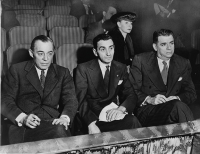
Richard Rodgers (1902 – 1979) and Oscar Hammerstein II (1895 – 1960) were a well-known American songwriting duo, usually referred to as Rodgers and Hammerstein. They created a string of popular Broadway musicals in the 1940s and 1950s during what is considered the golden age of the medium. With Rodgers composing the music and Hammerstein adding the lyrics, five of their shows, Oklahoma!, Carousel, South Pacific, The King and I, and The Sound of Music, were outstanding successes. In all, among the many accolades that their shows (and their film versions) garnered were thirty-four Tony Awards, fifteen Academy Awards, the Pulitzer Prize, and two Grammys.
League of Legends
League of Legends (LoL for short, Turkish meaning: Legends League) is a video game developed and published by Riot Games. It was released on October 27, 2009 as "League of Legends: Clash of Fates" as the first game of Riot Games. It is a MOBA type strategy game. The game is based on the Warcraft III map, Defense of the Ancients. The chief designer of the game is Steve Feak, who designed the Defense of the Ancients (DotA) map.
Johann Sebastian Bach

Johann Sebastian Bach (31 March 1685 – 28 July 1750) was a German composer and musician of the Baroque period. He is known for instrumental compositions such as the Art of Fugue, the Brandenburg Concertos, and the Goldberg Variations, and for vocal music such as the St Matthew Passion and the Mass in B minor. Since the 19th-century Bach Revival he has been generally regarded as one of the greatest composers of the Western art musical canon.
Yann Tiersen

Guillaume Yann Tiersen (born 23 June 1970) is a French musician and composer known internationally for composing the score to the Jean-Pierre Jeunet movie Amélie. His music is recognized by its use of a large variety of instruments in relatively minimalist compositions, often with a touch of either European classical music or French folk music, using primarily the piano, accordion or violin together with instruments like the melodica, xylophone, toy piano, ondes martenot, harpsichord and typewriter. His musical style is reminiscent of Frédéric Chopin, Erik Satie, Philip Glass and Michael Nyman.
Aretha Franklin
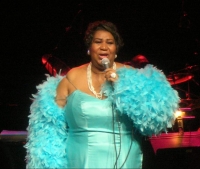
Aretha Louise Franklin (born March 25, 1942) is an American singer, songwriter and pianist self-named and commonly referred to as "The Queen of Soul". Although renowned for her soul recordings, Franklin is also adept at jazz, rock, blues, pop, R&B and gospel. In 2008, the American music magazine Rolling Stone ranked Franklin #1 on its list of The Greatest Singers of All Time.
Franklin is one of the most honored artists by the Grammy Awards, with 20 Grammys to date, which include the Living Legend Grammy and the Lifetime Achievement Grammy. She has scored a total of 20 #1 singles on the Billboard R&B Singles Chart, two of which also became #1 hits on the Billboard Hot 100: "Respect" (1967) and "I Knew You Were Waiting (For Me)" (1987), a duet with George Michael. Since 1961, Franklin has scored a total of 45 "Top 40" hits on the Billboard Hot 100 chart.
In 1987, Franklin became the first female artist to be entered into the Rock and Roll Hall of Fame.
Franklin was the featured singer at the 2009 Presidential inauguration ceremony for Barack Obama.
Franklin is one of the most honored artists by the Grammy Awards, with 20 Grammys to date, which include the Living Legend Grammy and the Lifetime Achievement Grammy. She has scored a total of 20 #1 singles on the Billboard R&B Singles Chart, two of which also became #1 hits on the Billboard Hot 100: "Respect" (1967) and "I Knew You Were Waiting (For Me)" (1987), a duet with George Michael. Since 1961, Franklin has scored a total of 45 "Top 40" hits on the Billboard Hot 100 chart.
In 1987, Franklin became the first female artist to be entered into the Rock and Roll Hall of Fame.
Franklin was the featured singer at the 2009 Presidential inauguration ceremony for Barack Obama.
Ennio moricone
Ennio Morricone is an Italian composer especially known for his soundtracks. He is one of the most recognized and critically acclaimed film musicians of the 20th century. The number of his films and television series exceeds 500.
Date of birth: November 10, 1928 (91 years old), Rome, ItalyInstrument: Trumpet; Piano Awards: Oscar for Best Soundtrack, Academy Honor Award,
Date of birth: November 10, 1928 (91 years old), Rome, ItalyInstrument: Trumpet; Piano Awards: Oscar for Best Soundtrack, Academy Honor Award,
Boyz II Men

Boyz II Men is a four-time Grammy Award-winning American R&B/soul singing group from Philadelphia, Pennsylvania. Founded in 1988 as a quintet which originally included Marc Nelson, Boyz II Men found fame as a quartet, with members Nathan Morris, Michael McCary, Shawn Stockman, and Wanya Morris, on Motown Records during the early 1990s. Nelson left the group before their first recording to pursue a solo career.
Based on sales, Boyz II Men is the most successful R&B male vocal group of all time. They recorded five #1 R&B hits between 1992 and 1997 and have sold more than 60 million records. Three of its #1 hits, "End of the Road", "I'll Make Love to You", and "One Sweet Day" , set and broke records for the longest period of time a single remained at #1 on the Billboard Hot 100; the last of them still holds the record. Although "On Bended Knee" did not break any records, it was still an immensely popular song that reached #1 and made Boyz II Men the third artists to replace themselves at the number one spot of the Billboard Hot 100.
Boyz II Men was signed to Motown Records from 1990 to 2000, at which point it was moved to parent label Universal Records. After the 2000 album Nathan Shawn Michael Wanya, Boyz II Men moved to Arista Records. In 2003, Michael McCary left the group due to chronic back problems resulting from scoliosis. As of 2005, Wanya Morris, Shawn Stockman, and Nathan Morris continue to tour and record as a trio. At the 1995 Grammy Awards, the group received four Grammy Award awards for their work, including two for their 1994 sophomore album, II in 1995.
Based on sales, Boyz II Men is the most successful R&B male vocal group of all time. They recorded five #1 R&B hits between 1992 and 1997 and have sold more than 60 million records. Three of its #1 hits, "End of the Road", "I'll Make Love to You", and "One Sweet Day" , set and broke records for the longest period of time a single remained at #1 on the Billboard Hot 100; the last of them still holds the record. Although "On Bended Knee" did not break any records, it was still an immensely popular song that reached #1 and made Boyz II Men the third artists to replace themselves at the number one spot of the Billboard Hot 100.
Boyz II Men was signed to Motown Records from 1990 to 2000, at which point it was moved to parent label Universal Records. After the 2000 album Nathan Shawn Michael Wanya, Boyz II Men moved to Arista Records. In 2003, Michael McCary left the group due to chronic back problems resulting from scoliosis. As of 2005, Wanya Morris, Shawn Stockman, and Nathan Morris continue to tour and record as a trio. At the 1995 Grammy Awards, the group received four Grammy Award awards for their work, including two for their 1994 sophomore album, II in 1995.
Cole Porter

Cole Albert Porter (June 9, 1891 – October 15, 1964) was an American composer and songwriter. His works include the musical comedies Kiss Me, Kate, Fifty Million Frenchmen, DuBarry Was a Lady and Anything Goes, as well as songs like "Night and Day", "I Get a Kick out of You", "Well, Did You Evah!" and "I've Got You Under My Skin". He was noted for his sophisticated, bawdy lyrics, clever rhymes and complex forms. Porter was one of the greatest contributors to the Great American Songbook. Cole Porter is one of the few Tin Pan Alley composers to have written both the lyrics and the music for his songs.
Destinys Child

Destiny's Child, sometimes abbreviated as DC or DC3, was an American R&B and pop girl group. Originally a quartet, it eventually became a trio consisting of Beyoncé Knowles, Kelly Rowland, and Michelle Williams. The group released four major studio albums and four US number-one singles. According to the Recording Industry Association of America, Destiny's Child has sold over 17.5 million records in the United States. According to the World Music Awards, they are the world's best-selling female group of all time. Billboard magazine ranked the group as one of the greatest musical trios of all time.
Formed in 1990 in Houston, Texas, Destiny's Child members began their musical endeavors while in their pre-teens. After years of struggling on the road, they signed in to Columbia Records. The release of their breakthrough album, The Writing's On The Wall, launched them to crossover mainstream that established them as a viable artist. While in their commercial peak, the group was plagued by public turmoil involving lawsuits; Williams and Farrah Franklin preempted two members, although the latter parted after months. The strife, however, was believed to only push the remaining members to greater achievements; they recorded their third album, Survivor, which the public interpreted as a channel to the experience. In 2002, Destiny's Child announced a hiatus which involved solo projects; the break allowed them to earn individual success. They re-united to record their final album, Destiny Fulfilled, and retired in 2005 to pursue individual careers in music, theatre, television, and film.
Formed in 1990 in Houston, Texas, Destiny's Child members began their musical endeavors while in their pre-teens. After years of struggling on the road, they signed in to Columbia Records. The release of their breakthrough album, The Writing's On The Wall, launched them to crossover mainstream that established them as a viable artist. While in their commercial peak, the group was plagued by public turmoil involving lawsuits; Williams and Farrah Franklin preempted two members, although the latter parted after months. The strife, however, was believed to only push the remaining members to greater achievements; they recorded their third album, Survivor, which the public interpreted as a channel to the experience. In 2002, Destiny's Child announced a hiatus which involved solo projects; the break allowed them to earn individual success. They re-united to record their final album, Destiny Fulfilled, and retired in 2005 to pursue individual careers in music, theatre, television, and film.
The Little Mermaid
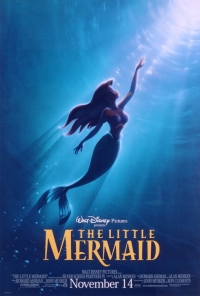
The Little Mermaid is a 1989 animated feature produced by Walt Disney Feature Animation with pencil test began on September 23, 1988 and first released on November 17, 1989 by Walt Disney Pictures with the first Wallace and Gromit short film, A Grand Day Out. The twenty-eighth animated feature in the Disney animated features canon, the film is based on the Hans Christian Andersen fairy tale "The Little Mermaid." During its initial release, it grossed over $84 million in the United States and an additional $99 million internationally.
The film is given credit for breathing life back into the animated feature film genre after a string of critical and commercial failures that had dated to the early 1980s. It also marked the start of the era known as Disney Renaissance.
A stage adaptation of the film with a book by Doug Wright and additional songs by Alan Menken and new lyricist Glenn Slater opened in Denver in July 2007 and began performances on Broadway.
The Little Mermaid: An Original Walt Disney Records Soundtrack is the soundtrack to Disney's 1989 animated feature The Little Mermaid. It contains the songs from the film written by Alan Menken and Howard Ashman, as well as the film's score composed by Alan Menken. The album received the Academy Award for Best Original Score and the Golden Globe Award for Best Original Score.
In October 2006, a new two-disc special edition version of the soundtrack was released to correspond with the two-disc Platinum Edition DVD release of The Little Mermaid. The first disc remains identical to the original release, yet with remastered audio, while the newly added second disc is composed of various newly recorded version of the film's songs by different artists, such as Ashley Tisdale, Raven-Symoné, The Jonas Brothers, and Jessica Simpson. It also includeds two videos, as well as new cover art.
The film is given credit for breathing life back into the animated feature film genre after a string of critical and commercial failures that had dated to the early 1980s. It also marked the start of the era known as Disney Renaissance.
A stage adaptation of the film with a book by Doug Wright and additional songs by Alan Menken and new lyricist Glenn Slater opened in Denver in July 2007 and began performances on Broadway.
The Little Mermaid: An Original Walt Disney Records Soundtrack is the soundtrack to Disney's 1989 animated feature The Little Mermaid. It contains the songs from the film written by Alan Menken and Howard Ashman, as well as the film's score composed by Alan Menken. The album received the Academy Award for Best Original Score and the Golden Globe Award for Best Original Score.
In October 2006, a new two-disc special edition version of the soundtrack was released to correspond with the two-disc Platinum Edition DVD release of The Little Mermaid. The first disc remains identical to the original release, yet with remastered audio, while the newly added second disc is composed of various newly recorded version of the film's songs by different artists, such as Ashley Tisdale, Raven-Symoné, The Jonas Brothers, and Jessica Simpson. It also includeds two videos, as well as new cover art.
George Winston
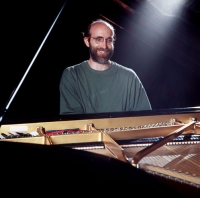
George Winston (born 1949) is an American pianist who was born in Michigan, and grew up in Miles City, Montana, and Mississippi. He is a graduate of Stetson University in Deland, Florida and lives in Santa Monica, California. Many of his pieces, self-described as "Rural Folk Piano", evoke the essence of a season and reflect natural landscapes. He performs in the new age genre. He also is known for his tribute album of Vince Guaraldi's compositions for the Peanuts animations.
Chobits
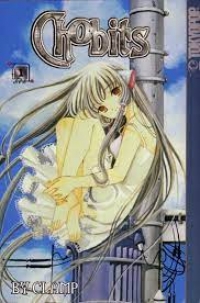
Chobits (Japanese: ちょびっツ, Hepburn: Chobittsu) is a Japanese manga series written and illustrated by the Japanese manga collective Clamp. It was published by Kodansha in Weekly Young Magazine from the 43rd issue for 2000 to the 48th issue for 2002 and collected in eight bound volumes. Chobits was adapted as a 26-episode-long anime television series broadcast on TBS from April to September 2002. In addition, it has spawned two video games as well as various merchandise such as figurines, collectable cards, calendars, and artbooks.
Jean-Philippe Rameau
Jean-Philippe Rameau is a well-known French composer and music theorist of baroque music in Europe. Jean-Baptiste Lully took his place in French opera and was the most important French composer who composed music for the French harpsichord Couperin and harpsichord.
Mozart

Wolfgang Amadeus Mozart, full name Johann Chrysostom Wolfgang Amadeus Mozart (27 January 1756 â 5 December 1791) was a prolific and influential composer of the Classical era. His over 600 compositions include works widely acknowledged as pinnacles of symphonic, concertante, chamber, piano, operatic, and choral music. Mozart is among the most enduringly popular of classical composers, and many of his works are part of the standard concert repertoire.
Mozart's music, like Haydn's, stands as an archetypal example of the Classical style. His works spanned the period during which that style transformed from one exemplified by the style galant to one that began to incorporate some of the contrapuntal complexities of the late Baroque, complexities against which the galant style had been a reaction. Mozart's own stylistic development closely paralleled the development of the classical style as a whole. In addition, he was a versatile composer and wrote in almost every major genre, including symphony, opera, the solo concerto, chamber music including string quartet and string quintet, and the piano sonata. While none of these genres were new, the piano concerto was almost single-handedly developed and popularized by Mozart. He also wrote a great deal of religious music, including masses; and he composed many dances, divertimenti, serenades, and other forms of light entertainment.
The central traits of the classical style can be identified in Mozart's music. Clarity, balance, and transparency are hallmarks of his work.
Mozart's music, like Haydn's, stands as an archetypal example of the Classical style. His works spanned the period during which that style transformed from one exemplified by the style galant to one that began to incorporate some of the contrapuntal complexities of the late Baroque, complexities against which the galant style had been a reaction. Mozart's own stylistic development closely paralleled the development of the classical style as a whole. In addition, he was a versatile composer and wrote in almost every major genre, including symphony, opera, the solo concerto, chamber music including string quartet and string quintet, and the piano sonata. While none of these genres were new, the piano concerto was almost single-handedly developed and popularized by Mozart. He also wrote a great deal of religious music, including masses; and he composed many dances, divertimenti, serenades, and other forms of light entertainment.
The central traits of the classical style can be identified in Mozart's music. Clarity, balance, and transparency are hallmarks of his work.
Georges Bizet

Georges Bizet (25 October 1838 – 3 June 1875) was a French composer and pianist of the Romantic era. He is best known for the opera Carmen.
Bizet was born at 26 rue de la Tour d'Auvergne in the 9th arrondissement of Paris in 1838. He was registered with the legal name Alexandre César Léopold Bizet, but he was baptised on 16 March 1840 with the first name Georges, and he was always known thereafter as Georges Bizet. His father Adolphe Armand Bizet (1810-86) was an amateur singer and composer, and his mother, Aimée Léopoldine Joséphine née Delsarte (1814-61), was the sister of the famous singing teacher François Delsarte.
He entered the Paris Conservatory of Music on 9 October 1848, a fortnight before his tenth birthday. His teachers there were Pierre Zimmermann (fugue and counterpoint; often assisted by his son-in-law Charles Gounod), Antoine François Marmontel (piano), François Benoist (organ) and, on Zimmermann's death, Fromental Halévy, whose daughter he himself later married. He won first prizes for organ and fugue in 1855 and completed his earliest compositions.
His first symphony, the Symphony in C, was written in November 1855, when he was seventeen, evidently as a student assignment. It was unknown to the world until 1933, when it was discovered in the archives of the Paris Conservatory library. Upon its first performance in 1935, it was immediately hailed as a junior masterwork and a welcome addition to the early Romantic period repertoire. The symphony bears a stylistic resemblance to the first symphony of Gounod, first played earlier in the same year, and which Bizet had arranged for two pianos although present-day listeners may discern a similarity to music of Franz Schubert, whose work was little known in France at the time the symphony was written.
In 1857, a setting of the one-act operetta Le docteur Miracle won him a share in a prize offered by Jacques Offenbach. He also won the music composition scholarship of the Prix de Rome, the conditions of which required him to study in Rome for three years. There, his talent developed as he wrote such works as the opera buffa Don Procopio (1858-59). There he also composed his only major sacred work, Te Deum (1858), which he submitted to the Prix Rodrigues competition, a contest for Prix de Rome winners only. Bizet failed to win the Prix Rodrigues, and the Te Deum score remained unpublished until 1971. He made two attempts to write another symphony in 1859, but destroyed the manuscripts in December of that year. Apart from this period in Rome, Bizet lived in the Paris area all his life.
Shortly after leaving Rome in July 1860, but while still touring in Italy, he had the idea of writing a symphony in which each of the four movements would be a musical evocation of a different Italian city – Rome, Venice, Florence and Naples. On hearing of his mother's serious illness he cut short his Italian travels and returned to Paris in September 1860; she died a year later. The Scherzo of the symphony was completed by November 1861, but it was not until 1866 that the first version of the whole symphony was written. He subjected it to a number of revisions through to 1871, but died before ever producing what he considered the definitive version. For this reason, the work is sometimes described as "unfinished", but this is an inaccurate description as it was fully scored. It was published in 1880 as the Roma Symphony.
Bizet was born at 26 rue de la Tour d'Auvergne in the 9th arrondissement of Paris in 1838. He was registered with the legal name Alexandre César Léopold Bizet, but he was baptised on 16 March 1840 with the first name Georges, and he was always known thereafter as Georges Bizet. His father Adolphe Armand Bizet (1810-86) was an amateur singer and composer, and his mother, Aimée Léopoldine Joséphine née Delsarte (1814-61), was the sister of the famous singing teacher François Delsarte.
He entered the Paris Conservatory of Music on 9 October 1848, a fortnight before his tenth birthday. His teachers there were Pierre Zimmermann (fugue and counterpoint; often assisted by his son-in-law Charles Gounod), Antoine François Marmontel (piano), François Benoist (organ) and, on Zimmermann's death, Fromental Halévy, whose daughter he himself later married. He won first prizes for organ and fugue in 1855 and completed his earliest compositions.
His first symphony, the Symphony in C, was written in November 1855, when he was seventeen, evidently as a student assignment. It was unknown to the world until 1933, when it was discovered in the archives of the Paris Conservatory library. Upon its first performance in 1935, it was immediately hailed as a junior masterwork and a welcome addition to the early Romantic period repertoire. The symphony bears a stylistic resemblance to the first symphony of Gounod, first played earlier in the same year, and which Bizet had arranged for two pianos although present-day listeners may discern a similarity to music of Franz Schubert, whose work was little known in France at the time the symphony was written.
In 1857, a setting of the one-act operetta Le docteur Miracle won him a share in a prize offered by Jacques Offenbach. He also won the music composition scholarship of the Prix de Rome, the conditions of which required him to study in Rome for three years. There, his talent developed as he wrote such works as the opera buffa Don Procopio (1858-59). There he also composed his only major sacred work, Te Deum (1858), which he submitted to the Prix Rodrigues competition, a contest for Prix de Rome winners only. Bizet failed to win the Prix Rodrigues, and the Te Deum score remained unpublished until 1971. He made two attempts to write another symphony in 1859, but destroyed the manuscripts in December of that year. Apart from this period in Rome, Bizet lived in the Paris area all his life.
Shortly after leaving Rome in July 1860, but while still touring in Italy, he had the idea of writing a symphony in which each of the four movements would be a musical evocation of a different Italian city – Rome, Venice, Florence and Naples. On hearing of his mother's serious illness he cut short his Italian travels and returned to Paris in September 1860; she died a year later. The Scherzo of the symphony was completed by November 1861, but it was not until 1866 that the first version of the whole symphony was written. He subjected it to a number of revisions through to 1871, but died before ever producing what he considered the definitive version. For this reason, the work is sometimes described as "unfinished", but this is an inaccurate description as it was fully scored. It was published in 1880 as the Roma Symphony.
Enya
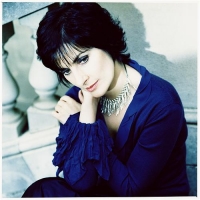
Enya (born Eithne Patricia Nà Bhraonáinon May 17, 1961, Gaoth Dobhair, County Donegal, Ireland), sometimes presented in the media as Enya Brennan, is an Irish singer, instrumentalist and composer. She is Ireland's best-selling solo artist and is officially the country's second biggest musical export (after U2). Her works have earned her four Grammy Awards and an Academy Award nomination, and she is also famous for performing in 10 different languages during her lengthy career. Enya is an approximate transcription of how Eithne is pronounced in her native Irish, in the Donegal dialect.
Frank Sinatra

Francis Albert "Frank" Sinatra (December 12, 1915 â May 14, 1998) was an American singer and actor.
Beginning his musical career in the swing era with Harry James and Tommy Dorsey, Sinatra became a solo artist with great success in the early to mid-1940s, being the idol of the "bobby soxers". His professional career had stalled by the 1950s, but it was reborn in 1954 after he won the Academy Award for Best Supporting Actor.
He signed with Capitol Records and released several critically lauded albums (such as In the Wee Small Hours, Songs for Swingin' Lovers, Come Fly with Me, Only the Lonely and Nice 'n' Easy). Sinatra left Capitol to found his own record label, Reprise Records (finding success with albums such as Ring-A-Ding-Ding, Sinatra at the Sands and Francis Albert Sinatra & Antonio Carlos Jobim), toured internationally, and fraternized with the Rat Pack and President John F. Kennedy in the early 1960s. Sinatra turned 50 in 1965, recorded the retrospective September of My Years, starred in the Emmy-winning television special Frank Sinatra: A Man and His Music, and scored hits with "Strangers in the Night" and "My Way".
Sinatra attempted to weather the changing tastes in popular music, but with dwindling album sales and after appearing in several poorly received films, he retired in 1971. Coming out of retirement in 1973, he recorded several albums, scoring a hit with "(Theme From) New York, New York" in 1980, and toured both within the United States and internationally until a few years before his death in 1998.
Sinatra also forged a career as a dramatic actor, winning the Academy Award for Best Supporting Actor for his performance in From Here to Eternity, and he was nominated for the Academy Award for Best Actor for The Man with the Golden Arm. His also starred in such musicals as High Society, Pal Joey, Guys and Dolls and On the Town. Sinatra was honored with the Kennedy Center Honors in 1983 and awarded the Presidential Medal of Freedom by Ronald Reagan in 1985 and the Congressional Gold Medal in 1997. Sinatra was also the recipient of eleven Grammy Awards, including the Grammy Trustees Award, Grammy Legend Award and the Grammy Lifetime Achievement Award.
Beginning his musical career in the swing era with Harry James and Tommy Dorsey, Sinatra became a solo artist with great success in the early to mid-1940s, being the idol of the "bobby soxers". His professional career had stalled by the 1950s, but it was reborn in 1954 after he won the Academy Award for Best Supporting Actor.
He signed with Capitol Records and released several critically lauded albums (such as In the Wee Small Hours, Songs for Swingin' Lovers, Come Fly with Me, Only the Lonely and Nice 'n' Easy). Sinatra left Capitol to found his own record label, Reprise Records (finding success with albums such as Ring-A-Ding-Ding, Sinatra at the Sands and Francis Albert Sinatra & Antonio Carlos Jobim), toured internationally, and fraternized with the Rat Pack and President John F. Kennedy in the early 1960s. Sinatra turned 50 in 1965, recorded the retrospective September of My Years, starred in the Emmy-winning television special Frank Sinatra: A Man and His Music, and scored hits with "Strangers in the Night" and "My Way".
Sinatra attempted to weather the changing tastes in popular music, but with dwindling album sales and after appearing in several poorly received films, he retired in 1971. Coming out of retirement in 1973, he recorded several albums, scoring a hit with "(Theme From) New York, New York" in 1980, and toured both within the United States and internationally until a few years before his death in 1998.
Sinatra also forged a career as a dramatic actor, winning the Academy Award for Best Supporting Actor for his performance in From Here to Eternity, and he was nominated for the Academy Award for Best Actor for The Man with the Golden Arm. His also starred in such musicals as High Society, Pal Joey, Guys and Dolls and On the Town. Sinatra was honored with the Kennedy Center Honors in 1983 and awarded the Presidential Medal of Freedom by Ronald Reagan in 1985 and the Congressional Gold Medal in 1997. Sinatra was also the recipient of eleven Grammy Awards, including the Grammy Trustees Award, Grammy Legend Award and the Grammy Lifetime Achievement Award.
Nobuo Uematsu

Nobuo Uematsu (植松伸夫 Uematsu Nobuo?, born March 21, 1959) is a Japanese video game composer and musician, best known for scoring the majority of titles in the Final Fantasy series. He is regarded as one of the most famous and respected composers in the video game community. Uematsu is a self-taught musician; he began to play the piano at the age of eleven or twelve, with Elton John as his biggest influence.
Uematsu joined Square (later Square Enix) in 1985, where he met Final Fantasy creator Hironobu Sakaguchi. They have worked together on numerous titles, most notably the games in the Final Fantasy series. After nearly 20 years in the company, he left Square Enix in 2004 and founded his own company called Smile Please, as well as the music production company Dog Ear Records. He has since composed music as a freelancer for video games primarily developed by Square Enix and Sakaguchi's development studio Mistwalker.
A handful of soundtracks and arranged albums of Uematsu's game scores have been released. Pieces from his video game works have been performed in concerts worldwide, and numerous Final Fantasy concerts have also been held. He has worked with Grammy Award-winning conductor Arnie Roth on several of these concerts. In 2002, he formed a rock band with colleagues Kenichiro Fukui and Tsuyoshi Sekito called The Black Mages, in which Uematsu plays the keyboard. The band plays arranged rock versions of Uematsu's Final Fantasy compositions.
Uematsu joined Square (later Square Enix) in 1985, where he met Final Fantasy creator Hironobu Sakaguchi. They have worked together on numerous titles, most notably the games in the Final Fantasy series. After nearly 20 years in the company, he left Square Enix in 2004 and founded his own company called Smile Please, as well as the music production company Dog Ear Records. He has since composed music as a freelancer for video games primarily developed by Square Enix and Sakaguchi's development studio Mistwalker.
A handful of soundtracks and arranged albums of Uematsu's game scores have been released. Pieces from his video game works have been performed in concerts worldwide, and numerous Final Fantasy concerts have also been held. He has worked with Grammy Award-winning conductor Arnie Roth on several of these concerts. In 2002, he formed a rock band with colleagues Kenichiro Fukui and Tsuyoshi Sekito called The Black Mages, in which Uematsu plays the keyboard. The band plays arranged rock versions of Uematsu's Final Fantasy compositions.
The Legend of Zelda

The Legend of Zelda (Zeruda no Densetsu) is a high fantasy action-adventure video game series created by game designer Shigeru Miyamoto and developed and published by Nintendo. The gameplay consists of a mixture of action, adventure, puzzle solving, role-playing and occasional platforming, stealth and racing elements. The series centers on Link, the main playable character and protagonist. Link is often given the task of rescuing Princess Zelda and the most common setting of the series, Hyrule, from Ganon who is the primary antagonist of the series. However, other settings and antagonists have appeared throughout the games, with Vaati having recently become the series' secondary antagonist. The story commonly involves a relic known as the Triforce, a set of three golden triangles of omnipotence. The protagonist in each game is not always the same iteration of Link, although the same character sometimes appears across multiple games.
The Legend of Zelda series has sold over 52 million copies since the release of the first game, The Legend of Zelda, and continues to be successful worldwide. The series consists of fourteen official games on all of Nintendo's major consoles, as well as several spin-offs. An animated series based on the games aired in 1989, and individual manga adaptions which are officially endorsed and commissioned by Nintendo have been produced in Japan since 1997.
The Legend of Zelda series has sold over 52 million copies since the release of the first game, The Legend of Zelda, and continues to be successful worldwide. The series consists of fourteen official games on all of Nintendo's major consoles, as well as several spin-offs. An animated series based on the games aired in 1989, and individual manga adaptions which are officially endorsed and commissioned by Nintendo have been produced in Japan since 1997.
George Michael
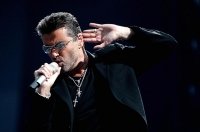
Georgios Kyriacos Panayiotou (born June 25, 1963) best known as George Michael, is a two-time Grammy Award winning, English singer-songwriter, who has had a career as frontman of the duo Wham! as well as a soul-influenced, solo pop musician. He has sold over 100 million records worldwide, encompassing 12 British #1 singles, 7 British #1 albums, 10 US #1 singles, and 2 US #1 albums. His 1987 debut solo album, Faith became one of the best selling albums of all time, and also the first album to produce six top 5 singles in the United States and it has sold over 20 million copies worldwide. All four of his solo studio albums have all reached #1 on the U.K. charts and have gone on to become huge international successes. This success has made George Michael the most played artist on British radio over the past two decades.
Cannonball Adderley
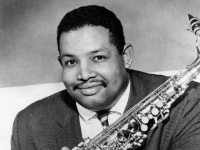
Julian Edwin "Cannonball" Adderley was an American jazz alto saxophonist of the hard bop era of the 1950s and 1960s. Adderley is remembered for his 1966 soul jazz single "Mercy, Mercy, Mercy", a crossover hit on the pop charts
Moritz Moszkowski
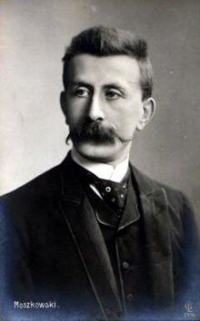
Moritz (Maurice) Moszkowski (23 August 1854 – 4 March 1925) was a German composer, pianist, and teacher of Polish descent. Ignacy Paderewski said, "After Chopin, Moszkowski best understands how to write for the piano". Although little known today, Moszkowski was well-respected and popular during the late nineteenth century.
His music is brilliant, but has also been described as "devoid of the masculine and the feminine". He wrote over two hundred small-scale piano pieces, which brought him much popularity – notably his set of Spanish Dances, Op. 12, for piano duet (later arranged for solo piano, and for orchestra ). His early Serenade, Op. 15, was world-famous and appeared in many guises, including the song Liebe, kleine Nachtigall. Today he is probably best known for his fifteen Études de Virtuosité, Op. 72, which have been performed by virtuoso pianists such as Vladimir Horowitz and Marc-André Hamelin. Surprisingly, their first complete recording was not until 1970 (by Ilana Vered). Many of his small but brilliant piano pieces, such as Étincelles (Sparks), are used as encore performances at the end of classical concerts.
He also wrote larger scale works including the Piano Concerto in E major, Op. 59 (1898), the Violin Concerto in C major, Op. 30, three orchestral suites (Opp. 39, 47, 79), and a symphonic poem Jeanne d'Arc, Op. 19.
He wrote the opera Boabdil der letzte Maurenkönig, Op. 49, on the historical theme of the capture of Granada. It was premiered at the Berlin Court Opera on 21 April 1892, and appeared in Prague and New York the following year. It did not stay in the repertoire, but its ballet music was very popular for a number of years. He wrote a three-act ballet Laurin in 1896.
His music is brilliant, but has also been described as "devoid of the masculine and the feminine". He wrote over two hundred small-scale piano pieces, which brought him much popularity – notably his set of Spanish Dances, Op. 12, for piano duet (later arranged for solo piano, and for orchestra ). His early Serenade, Op. 15, was world-famous and appeared in many guises, including the song Liebe, kleine Nachtigall. Today he is probably best known for his fifteen Études de Virtuosité, Op. 72, which have been performed by virtuoso pianists such as Vladimir Horowitz and Marc-André Hamelin. Surprisingly, their first complete recording was not until 1970 (by Ilana Vered). Many of his small but brilliant piano pieces, such as Étincelles (Sparks), are used as encore performances at the end of classical concerts.
He also wrote larger scale works including the Piano Concerto in E major, Op. 59 (1898), the Violin Concerto in C major, Op. 30, three orchestral suites (Opp. 39, 47, 79), and a symphonic poem Jeanne d'Arc, Op. 19.
He wrote the opera Boabdil der letzte Maurenkönig, Op. 49, on the historical theme of the capture of Granada. It was premiered at the Berlin Court Opera on 21 April 1892, and appeared in Prague and New York the following year. It did not stay in the repertoire, but its ballet music was very popular for a number of years. He wrote a three-act ballet Laurin in 1896.
Burt Bacharach
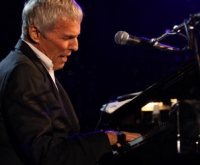
Burt Bacharach (born May 12, 1928) is an American pianist and composer. He is best known for his many pop hits from the early 1960s through the 1980s, with lyrics written by Hal David, many of which were produced for and recorded by Dionne Warwick.
As of 2006, Bacharach had written a total of 70 Top 40 hits in the US, and 52 Top 40 hits in the UK. According to britishhitsongwriters.com he is the eighteenth most successful songwriter in U.K. chart history based on weeks that his compositions have spent on the chart.
As of 2006, Bacharach had written a total of 70 Top 40 hits in the US, and 52 Top 40 hits in the UK. According to britishhitsongwriters.com he is the eighteenth most successful songwriter in U.K. chart history based on weeks that his compositions have spent on the chart.
Debussy

Achille-Claude Debussy (August 22, 1862 – March 25, 1918) was a French composer. Along with Maurice Ravel, he is considered one of the most prominent figures working within the field of Impressionist music, though he himself intensely disliked the term when applied to his compositions. Debussy was not only among the most important of all French composers but also was a central figure in all European music at the turn of the twentieth century.
Debussy's music virtually defines the transition from late-Romantic music to twentieth century modernist music. In French literary circles, the style of this period was known as Symbolism, a movement that directly inspired Debussy both as a composer and as an active cultural participant.
Debussy's music virtually defines the transition from late-Romantic music to twentieth century modernist music. In French literary circles, the style of this period was known as Symbolism, a movement that directly inspired Debussy both as a composer and as an active cultural participant.
Madonna

Madonna Louise Ciccone Ritchie (born August 16, 1958), known as Madonna, is an American recording artist and entertainer. Born in Bay City, Michigan and raised in Rochester Hills, Michigan, Madonna moved to New York City for a career in modern dance. After performing as member of the pop musical groups Breakfast Club and Emmy, she released her self-titled debut album in 1983, and then produced three consecutive number-one studio albums on the Billboard 200 in the 1980s.
Madonna is known for her works that explore religious symbolism and sexual themes which also drew criticism from the Vatican in the late 1980s. In 1992, she founded an entertainment company, Maverick, which published a book of photographs (Sex). She also released a studio album (Erotica) and starred in a film (Body of Evidence) with erotic themes. These works generated negative publicity and coincided with a fall in commercial sales in the 1990s. Madonna's career was revived in 1998, when the release of her album Ray of Light garnered critical acclaim. She subsequently made four consecutive number-one studio albums.
Madonna has acted in 22 films. Although several failed critically and commercially, she earned a Golden Globe Award for her role in the 1996 film Evita. Divorced from actor Sean Penn, Madonna bore a daughter by personal trainer Carlos Leon before marrying film director Guy Ritchie. She and Richie have a son and in 2008 they adopted a second, Malawian David Banda, over media allegations they violated that country's adoption laws.
Madonna is known for her works that explore religious symbolism and sexual themes which also drew criticism from the Vatican in the late 1980s. In 1992, she founded an entertainment company, Maverick, which published a book of photographs (Sex). She also released a studio album (Erotica) and starred in a film (Body of Evidence) with erotic themes. These works generated negative publicity and coincided with a fall in commercial sales in the 1990s. Madonna's career was revived in 1998, when the release of her album Ray of Light garnered critical acclaim. She subsequently made four consecutive number-one studio albums.
Madonna has acted in 22 films. Although several failed critically and commercially, she earned a Golden Globe Award for her role in the 1996 film Evita. Divorced from actor Sean Penn, Madonna bore a daughter by personal trainer Carlos Leon before marrying film director Guy Ritchie. She and Richie have a son and in 2008 they adopted a second, Malawian David Banda, over media allegations they violated that country's adoption laws.
 Sheet Music Mobile is a site for those who wants to access popular sheet music easily,
letting them download the sheet music for free for trial purposes.
It's completely free to download and try the listed sheet music, but you have to delete the files after 24 hours of trial.
Don't forget, if you like the piece of music you have just learned playing,
treat the artist with respect, and go buy the original sheet music.
Sheet Music Mobile is a site for those who wants to access popular sheet music easily,
letting them download the sheet music for free for trial purposes.
It's completely free to download and try the listed sheet music, but you have to delete the files after 24 hours of trial.
Don't forget, if you like the piece of music you have just learned playing,
treat the artist with respect, and go buy the original sheet music.
